
The Free Press

One year ago this month, the American labor movement scored its greatest victory in a generation: Amazon employees in Staten Island voted to organize their warehouse under the Amazon Labor Union (ALU). It was the first—and remains the only—of Amazon’s 110 active U.S. fulfillment centers to unionize.
Workers from the massive JFK8 fulfillment center shouted for joy on a Brooklyn sidewalk outside the office of the National Labor Relations Board when the results—2,654 for 2,131 against—were announced. ALU leader Christian Smalls popped champagne as photographers snapped away.
But the rapturous press coverage of Smalls—a character known for his distinctive do-rags and shades—mostly omitted mention of the decidedly non-working-class stiffs pictured next to him.
It turns out the ALU’s rise was made possible by college-educated true believers, three of whom—Madeline Wesley of Wesleyan University, Julian Mitchell-Israel of Oberlin, and Justine Medina of Marymount Manhattan—appeared front and center in the famous photos of the union’s win.
“When I tell workers I have a college degree, they’re always like, ‘What are you doing here?’ They’re just in shock. They think I’m crazy,” Cassio Mendoza, 24, told me, laughing. “I’m like, ‘You know, I’m just here trying to make sure the union goes through.’ ”
Mendoza, a self-described socialist film producer, grew up in Los Angeles and earned a communications degree from Northwestern University in 2020. After Mendoza met Smalls at a protest outside Bezos’ L.A. mansion, the union leader invited him to join the movement—and the recent grad relocated to Staten Island. He soon became the ALU’s director of communications, making flyers, producing its newspaper, and using his filmmaking expertise to create viral TikTok videos that elevated the union’s profile.
Mendoza is a “salt,” an activist who seeks work in a nonunion shop expressly to organize it—like Amazon’s warehouses, where workers complain of dehumanizing conditions that push annual turnover to 150 percent. This means that, if you take a job at a fulfillment center, one year later everyone you started with will be gone. Half the people who replaced them will be gone, too.
“It was extremely easy to get a job at Amazon,” Mendoza said. “You fill out an application, and two weeks later, you’re hired. If you have a beating pulse, you’re good to go.”
Officially, the salts don’t exist. “It’s not something the union is part of,” ALU spokesperson Evangeline Byars said. “People like that, they’re not able to connect with the workers.”
Unofficially, it’s another story.
“It was very impactful,” said Dana Miller, who helped launch the union in April 2021 but left on bad terms with Smalls. “The ALU organizing committee that won was, in the end, about half comprised of salts.”
Jason Anthony of Brooklyn, another Staten Island ALU founder and ex-committee member, said, referring to the salts: “We thought, they’re really committed to the cause if they’re willing to move across the country. So we were like, ‘The more the merrier.’ ”
Smalls’ attitude toward the salts, meanwhile, is hard to pin down.
In a May 2022 interview with The Dig, a podcast put out by the socialist magazine Jacobin, the head of the ALU said: “We have some dedicated salts. We need them. With the bargaining unit we have, we’re talking 8,300, it’s not going to come from just workers.”
But in the same interview Smalls also distinguished between salts and real Amazon employees. “Their task,” Smalls said, referring to the salts, “was and is to support the workers.”

The term “salt” stretches back to the nineteenth century, and refers to how mine bosses “salted” their own mines with gold dust to make them appear more valuable to investors. A group of construction unions in Rochester, New York, appears to have pioneered the tactic in the 1860s. More recently, salts have helped the organizing of Starbucks baristas, Chipotle dishwashers and burrito-makers, and of course, Amazon fulfillment center associates.
The new salting movement has been fueled by young, left-wing activists: Young Democratic Socialists of America, the campus branch of DSA, preaching the gospel at colleges; Jacobin declaring that salting “built the early American labor movement” and “can revive it today.”
Last year, according to an internal survey, thousands of DSA members voiced interest in salting—targeting an array of industries and corporations. A March 2022 video of Gianna Reeve, a Starbucks organizer, confronting Starbucks founder and then-interim CEO Howard Schultz went viral—energizing many would-be salts. (Reeve is not a salt, but was subtly nudged into unionizing by a group of them.)
Those persuaded to join the Amazon cause not only had a college degree but, in many cases, came from well-off families.
Among those who joined was Madeline Wesley of Davie, Florida, daughter of a prominent labor lawyer and power company executive. Wesley graduated in 2020 from Wesleyan University in Middletown, Connecticut—where tuition, room, and board run $82,202, more than twice the salary of the average Amazon warehouse associate. She came to the ALU by way of Seth Goldstein, an ALU attorney; the two had met while involved in an effort to unionize Wesleyan staff. In early 2022, a GoFundMe campaign Wesley launched for the ALU raised nearly $442,000.
Brett Daniels became the ALU’s director of organizing after arriving in Staten Island from Chandler, Arizona. As an undergraduate at the University of Arizona, he was the student government’s executive diversity director, and had been an organizer, later, with the “Fight for $15” movement in Tucson.
Mat Cusick of Sacramento dropped out of the Creative Publishing and Critical Journalism program at the New School, in New York City, for a warehouse job, in 2021. He was the union’s communications lead during the JFK8 vote.
Julian Mitchell-Israel, who grew up in Park Slope, Brooklyn, and attended Grace Church School—where parents pay nearly $60,000 annually to ensure their children will matriculate at Ivy League universities—reportedly sent a résumé to Smalls after graduating from Oberlin College with a political science major.
Mitchell-Israel had worked on Bernie Sanders’ 2016 presidential campaign while still in high school and assisted Madeline Wesley on the ALU’s failed union vote at a second Staten Island warehouse, LDJ5, in May.
“[U]nionizing Amazon is a rekindling of the labor movement around the country,” Mitchell-Israel told The Oberlin Review. “This movement is building worker power for worker power’s sake.”
In an exuberant Facebook post she published after the JFK8 victory, Justine Medina said she “was lucky to be recruited into this effort as a salt by the [ALU’s] Worker Organizing Committee because of my organizing experience with the YCL [Young Communists League].” While a senior at Marymount Manhattan College, she attended an Occupy Wall Street demonstration with a professor.
“We can have the revolution we deserve, and we can win a better world, a free socialist world for everyone,” Medina wrote. Like most of her fellow salts, she did not respond to requests for comment from The Free Press.

It’s not a great surprise that twenty- and thirty-somethings—who came of age in the wake of the housing and financial crises, graduated with unprecedented debt into the so-called gig economy, and are less likely than older generations to marry or own real-estate—are ripe for organizing.
Joseph McCartin, a labor historian at Georgetown University, said salting, at Amazon and elsewhere, “is not just an ideological commitment—these people are feeling the dysfunction of our labor markets.”
He added that the shifting nature of work in the United States had helped blur the distinction between the college- and non-college-educated. Sixty or seventy years ago, he said, you could get a job at U.S. Steel or at an auto plant and spend your whole working life there. That job was who you were.
Now, people move from one job or career or space to another with great fluidity. “Over the past generation or so, there’s been a loosening between the relationship between work and identity,” McCartin said. “That makes it easier for young people who come from a college setting to think of themselves as a worker who has something in common with other workers.”
This emerging working class of college graduates is also more likely to transcend the racial and gender boundaries that the ownership class had traditionally used to keep workers divided.
“They’re bringing a lot of hope to social change, to the construction of a truly multiracial democracy,” McCartin said.
Salts are particularly drawn to Amazon fulfillment centers because they are extraordinarily tough places to work—a symbol of the unseen, backbreaking labor that actually forms the core of our supposedly digital economy.
“It’s more dangerous to work at our Amazon warehouse than it is to work in a coal mine or for the Department of Sanitation,” Staten Islander Rina Cummings, 41, a JFK8 veteran and ALU member, told me. “You’re just disposable.”
According to a report compiled by several unions, in 2021, 6.8 Amazon employees out of 100 suffered a “serious injury.” Amazon employees tend to suffer from musculoskeletal disorders like hernias, tendinitis, spinal degeneration, and joint injuries. They have also contended with miscarriages, heart attacks, deep vein thrombosis, and repetitive stress injuries, Cummings said.
Staten Islander Maureen Donnelly lasted just 12 days at JFK8 when it opened in 2018.
“It was brutal,” she told me. “It felt like they were setting us up for failure.”
Donnelly’s solitary 10-hour shift as a stower had her climbing up and down a stepladder hundreds of times an hour. She said she lost five pounds—“They could market it as the Amazon Diet”—and her ankles ballooned.
“I had to ask permission to pee,” she added. “I felt so dehumanized. Clearly in the hierarchy of this place, there’s Jeff, then the robots, and then the rest of the humans that work there way down below.”
“Amazon is actually encouraging the high turnover,” said Alec MacGillis, who profiled many Amazon employees while writing his 2021 book Fulfillment: Winning and Losing in One-Click America. By 2021, only one of every three new warehouse hires stayed with the job for more than 90 days—part of founder Jeff Bezos’ effort, dating to Amazon’s early days, to avoid the “march to mediocrity” he feared an entrenched workforce would bring.
“For one thing, if they keep you around, you’re going to cost more as your pay bumps up over time,” MacGillis said. “But more importantly, if you stay, you’re more likely to start forming relationships with other workers and organizing.”
Amazon spokesperson Eileen Hards told The Free Press: “Our employees have the choice of whether or not to join a union.” She added: “As a company, we don’t think unions are the best answer for our employees.”
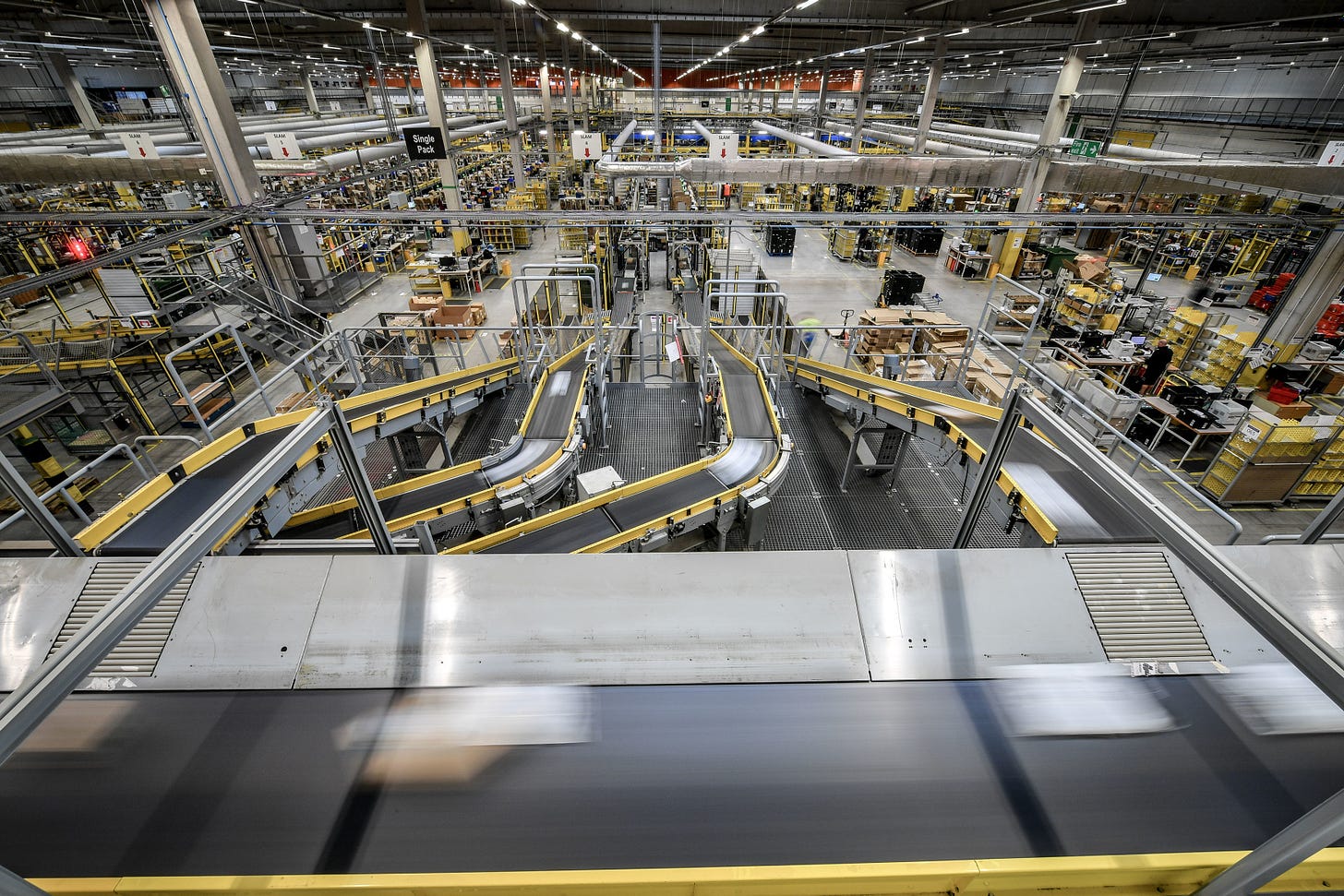
In the year since the successful vote, the ALU has failed to expand to other fulfillment centers. Part of that is due to location.
The same month Smalls launched the ALU, in April 2021, a similar union vote took place at an Amazon warehouse in Bessemer, Alabama—and failed spectacularly. While New York has a long history of unions, Alabama, like other Southern states, has generally been hostile to them.
Meanwhile, the unique political climate of 2021 and 2022, during the lockdowns and in the wake of nationwide Black Lives Matter protests, made it easier to recruit potential salts—but that esprit de corps won’t last forever, said Jamie McCallum, author of Essential: How the Pandemic Transformed the Long Struggle for Worker Justice.
“There was a kind of social-democratic spirit,” McCallum said. “We’re all socialists during the crisis.”
That spirit, however faint now, has kept Cassio Mendoza loyal to the ALU—working, organizing, trying to build a workers’ consciousness out of the fluorescent-lit caverns of JFK8.
“Could be months, could be years,” he said, when asked how long he plans to stay on. “I’ll stick around until we make some progress toward either a contract or at least starting to bargain.
“I’m not trying to be a leader in the union,” he said. “I really just try to find other workers who are already there who want to organize and connect them to it.
“It’s funny, though,” he added, with an awkward laugh. “Because the turnover rate is so high, like, now I think I’ve been there longer than most of the people I work with. That’s not really the way it’s supposed to happen.”
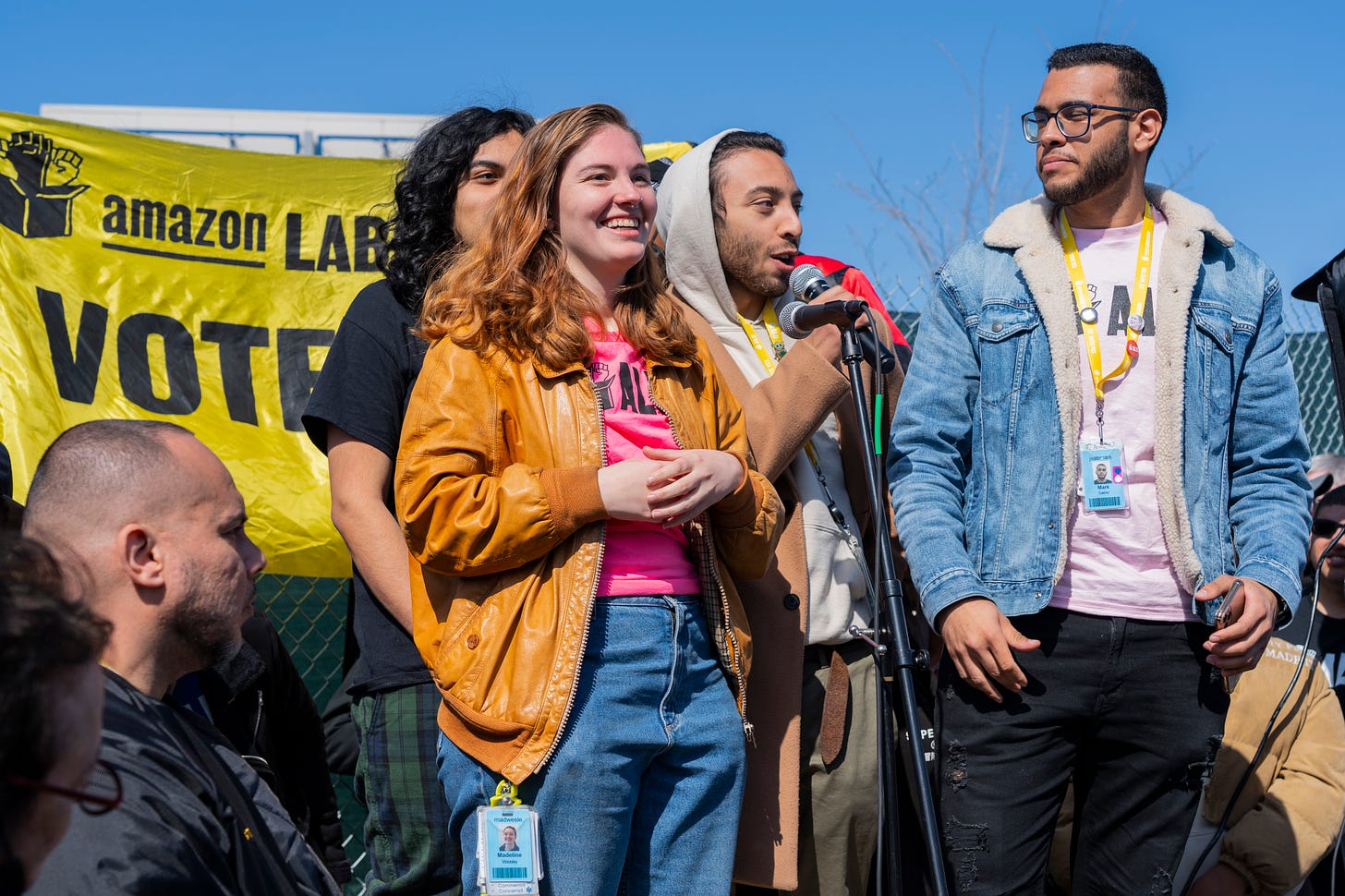
It could take the ALU a long time to bring about better conditions for its workers—and they still might never beat the daily grind.
In 2019, I saw the Amazon grind up close, watching as my son, then 22, became a manager at a warehouse halfway across the country. The $47,000 salary, plus $9,000 signing bonus and relocation stipend, sounded good to a kid just out of college, and he took the job with the cheerful earnestness of the Eagle Scout he is. Six weeks in he called us in despair.
“Everything hurts,” he said. Mandatory overtime—unpaid, thanks to his “manager” title—had him at the warehouse up to 12 hours a day, six days a week. He walked as many as 15 miles a shift while lifting heavy packages to help his team make its rates. He gobbled ibuprofen around the clock. His joints ached like those of an arthritic senior.
Worse, to him, was the injustice of the company’s rules. When a tornado swept through the area, he said, his most conscientious worker missed a shift to help her grandparents patch up their home—and was instantly fired for exceeding her allowable hours of unpaid leave.
“She couldn’t even come in to say goodbye,” he said. He quit a few weeks later and returned to the family home—a refuge that many other fulfillment center workers lack.
Mary Kay Linge is a New York City–based reporter specializing in education and politics. This is her first piece for The Free Press. Read Rupa Subramanya’s piece about ESG: The Giant Grift that Swallowed Wall Street here.
And to support more of our journalism covering shifts in the culture and economy, become a Free Press subscriber today:

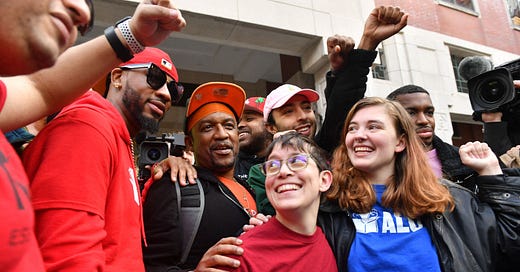

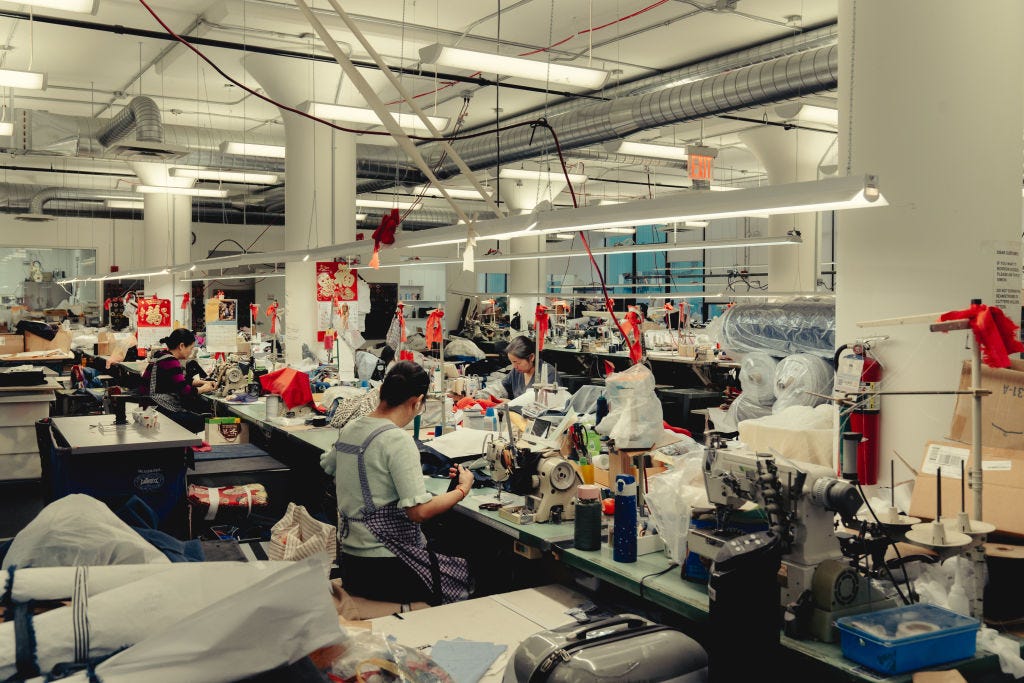

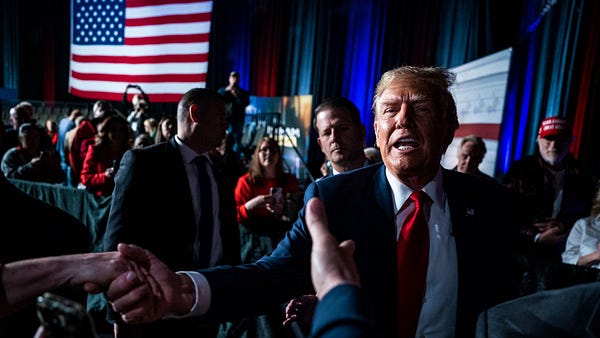





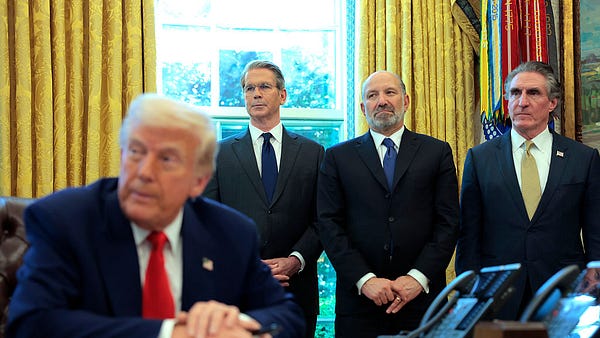

"This emerging working class of college graduates is also more likely to transcend the racial and gender boundaries that the ownership class had traditionally used to keep workers divided."
Wow! Not much objectivity here.
This is a great piece.
I am not a man of the Left and look askance at unions generally, but in the case of Amazon I fully support the efforts to unionize the workforce.
I have a passion for occupational safety and health (OSH). When it became clear years ago that the majority of complaints Amazon workers had and still have today are OSH-related, and Jeff Bezos has since the time he was the world's richest man ignored these complaints even if it would not cost him much (relative to his net worth) to improve working conditions across his company's facilities globally, I took an interest in the agitation and hoped it would succeed.
It is worth exploring why the unionization drive in Alabama failed so that going forward mistakes are not repeated. As far as I have observed these drives focus mostly on wages, which I find unfortunate from a strategic point of view because Amazon is careful to pay above state minimum wages so it is a tall order to argue for increase in wages to match rise in inflation, increase in fuel/energy costs, etc. OSH would be a good unionization strategy that legislators would readily support. In addition things like adequate leave, emergency time off, stock options for all workers, etc. can also be fought for.
The rise of AI should also be closely monitored by workers. Robots are going to be doing more and more jobs, so worker training for this eventuality is also paramount.